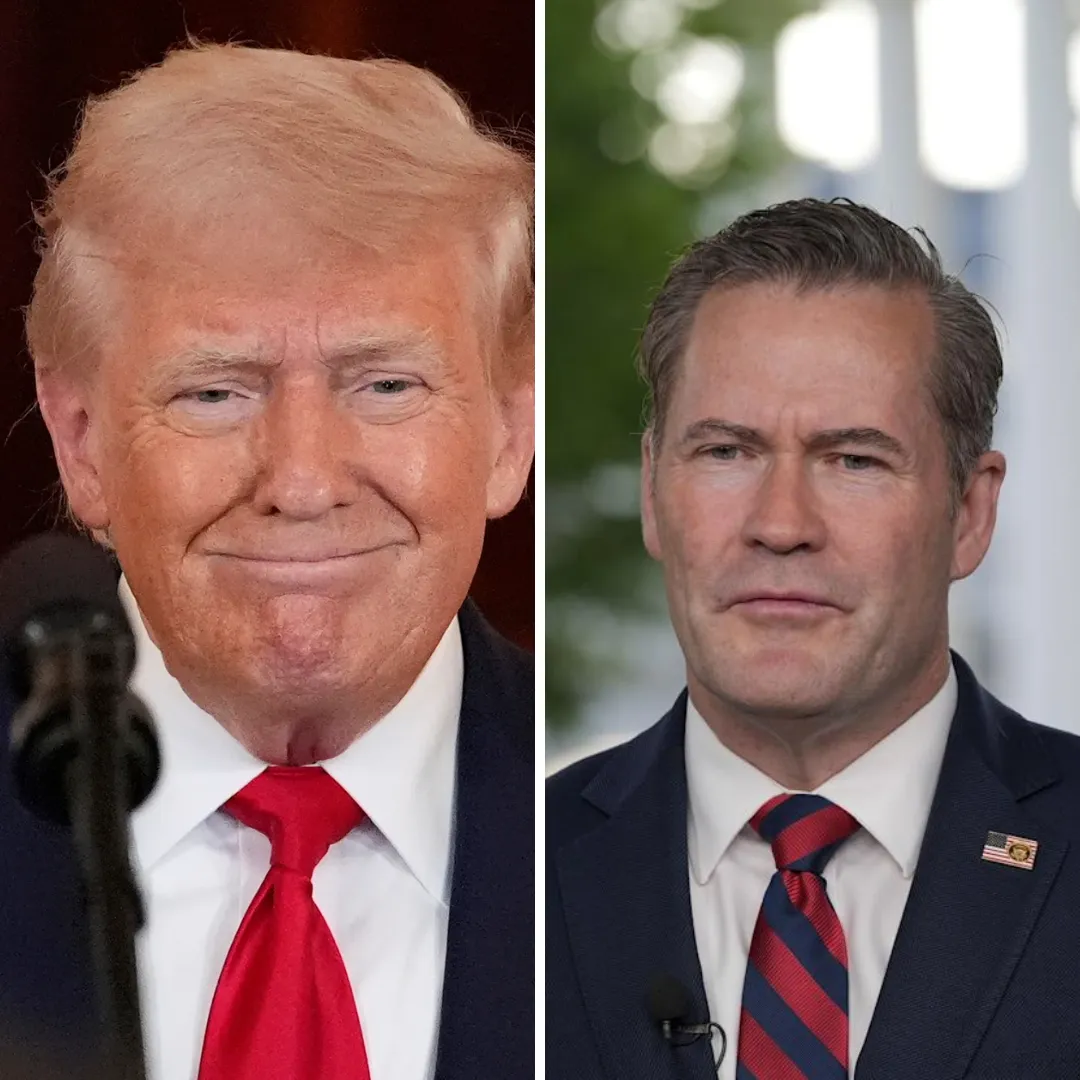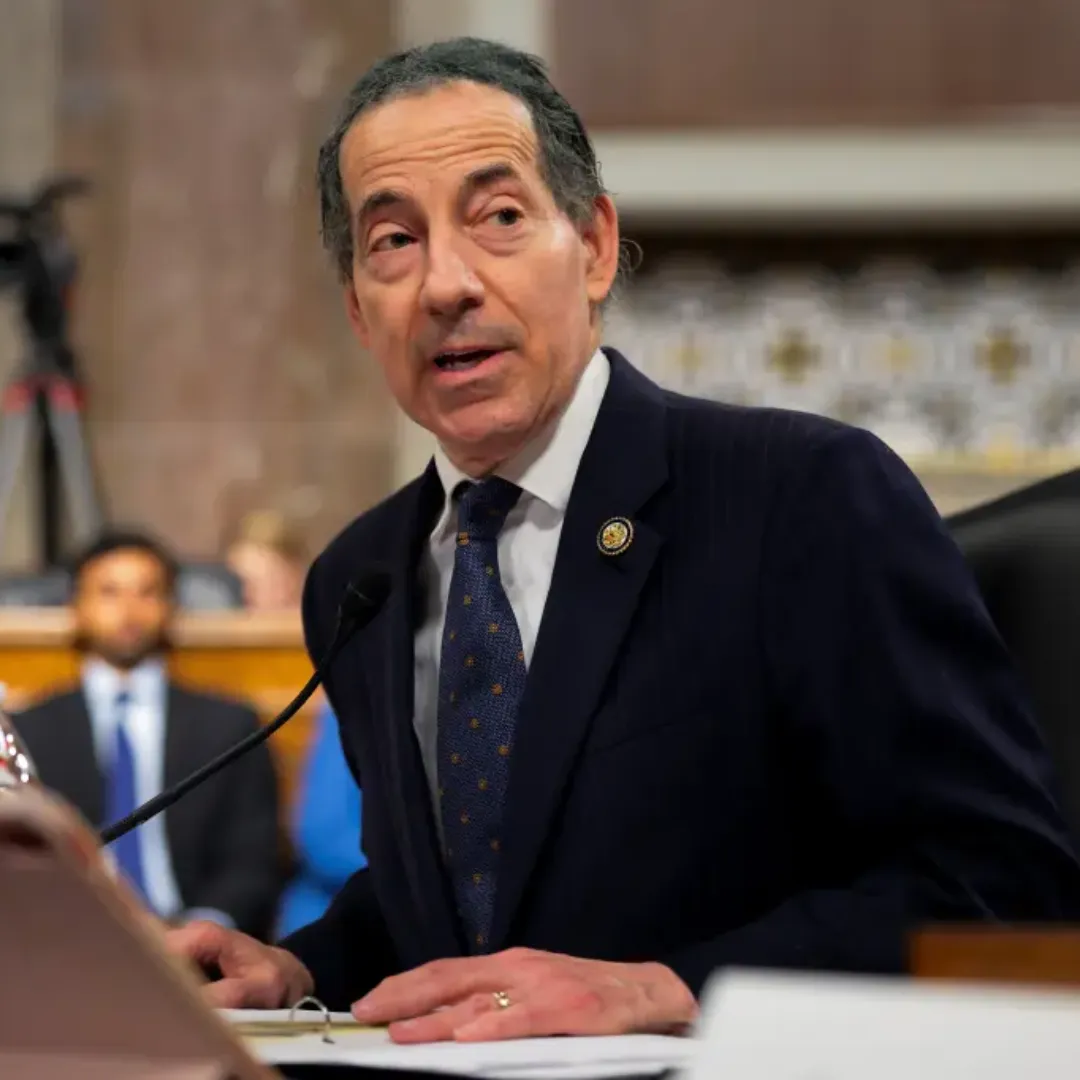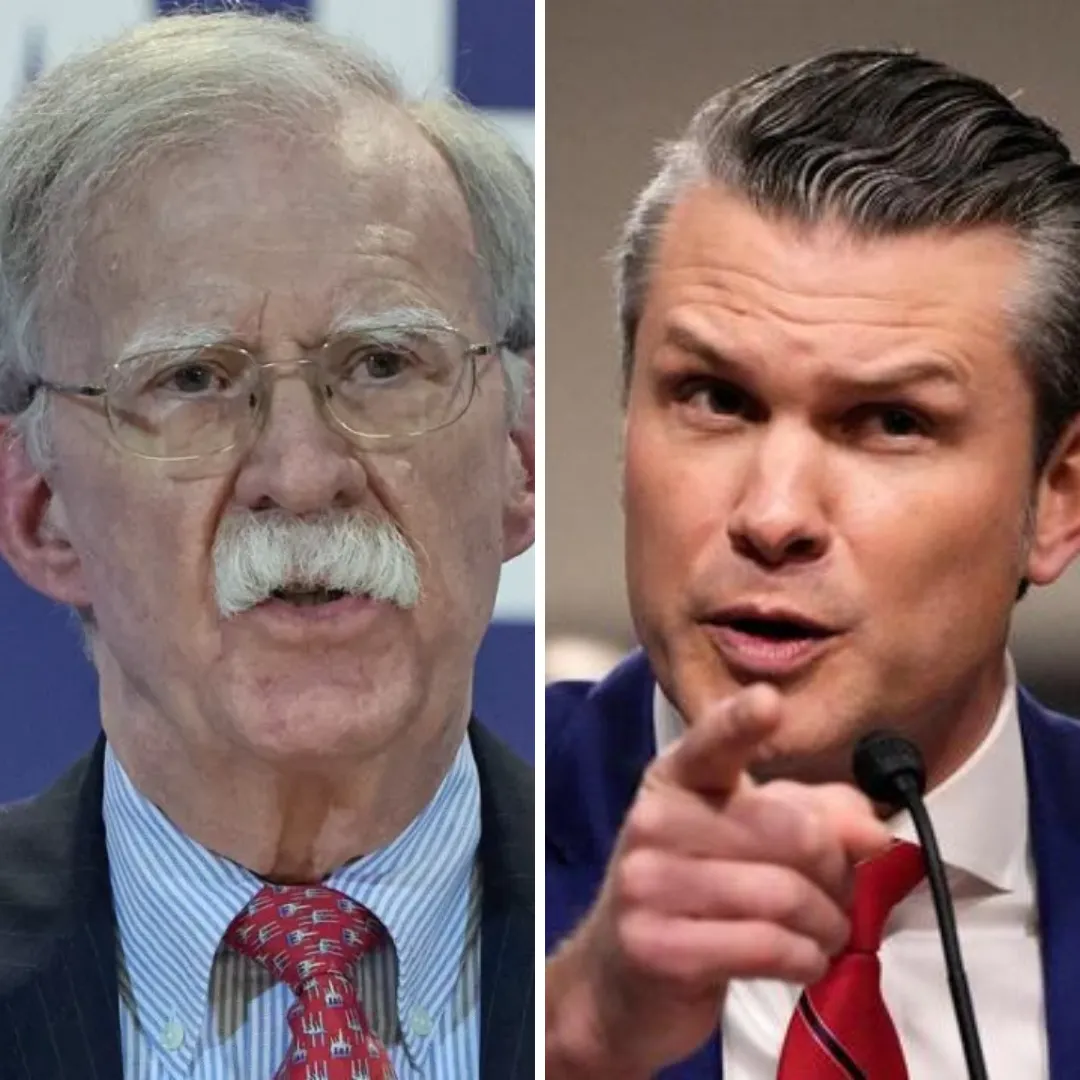
Former Vice President Kamala Harris delivered a pointed critique of the Trump administration during a speech at a Democratic women’s gala in San Francisco on Wednesday evening, accusing President Trump and his allies of abandoning the nation’s core ideals and weaponizing fear as a tool of political control.
Harris, speaking at an Emerge America event, addressed the state of the nation just one day after the 100-day mark of Trump’s second term in office, a milestone marked by sweeping changes in immigration enforcement, trade policy, and federal governance.
While she stopped short of offering a full analysis of the administration’s early record, Harris made it clear that she sees the direction of the country as deeply troubling.
“Now I know tonight’s event happens to coincide with the 100 days after the inauguration, and I’ll leave it to others to give a full accounting of what has happened so far,” Harris said. “But I will say this: instead of an administration working to advance America’s highest ideals, we are witnessing the wholesale abandonment of those ideals.”
Her remarks drew strong applause from the audience, which included elected officials, political organizers, and activists. Harris, a former presidential candidate and California senator, has remained an influential voice within the Democratic Party since leaving office and continues to be viewed as a prominent figure in shaping the party’s direction as it seeks to rebuild after a bruising election cycle.
Throughout her speech, Harris emphasized the moral and emotional dimensions of American leadership, arguing that the Trump administration is relying on fear to consolidate power.
“The current administration and its supporters are counting on the notion that fear can be contagious,” she said. “They are counting on the notion that if they make some people afraid, it will have a chilling effect on others.”
She then countered that view with a message of resilience. “But what they’re overlooking, what they have overlooked, is that fear is not the only thing that’s contagious. Courage is contagious.”
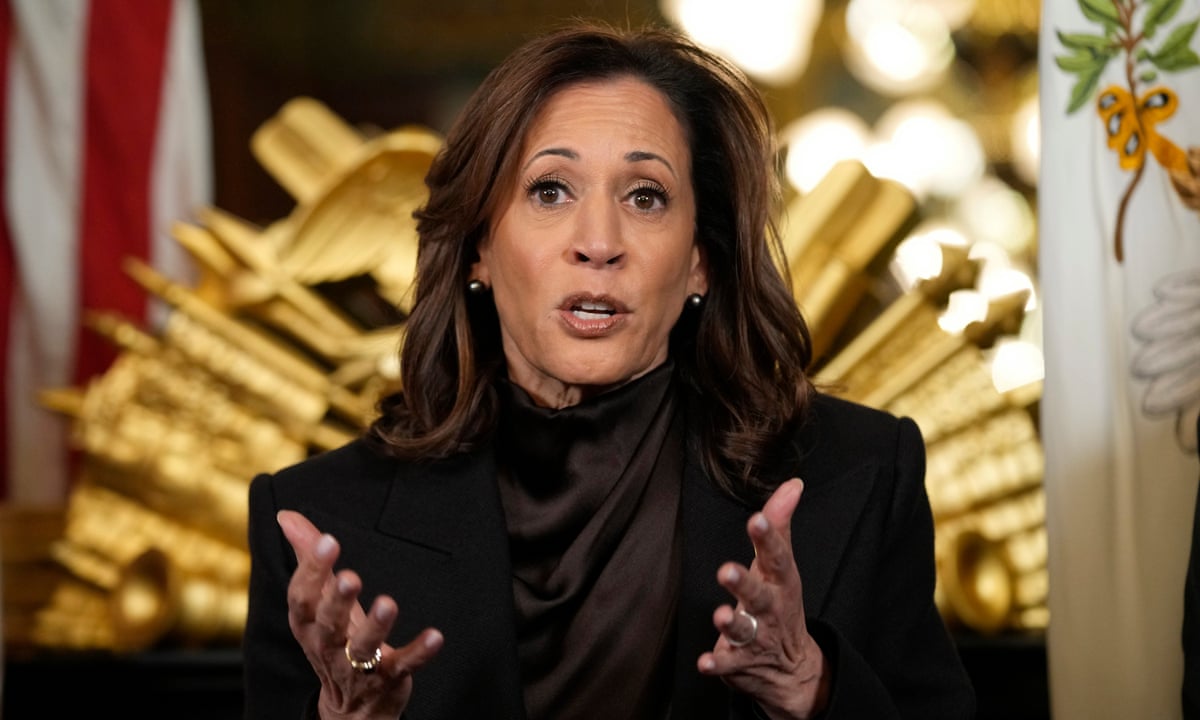
The crowd responded with a standing ovation.
The speech came as Democrats face internal challenges of their own. Following the November election, which saw the party fail to reclaim the House and lose control of the Senate, many within the Democratic coalition are debating how best to present their message to the public.
Some have called for a bold progressive agenda, while others urge a return to more centrist language in an effort to appeal to swing voters.
The Biden-Harris administration, which concluded its term at the end of 2024, continues to be a point of both pride and controversy within Democratic circles.
While many supporters praise its record on climate change, judicial appointments, and pandemic recovery, others argue that more forceful action was needed on issues such as immigration reform, voting rights, and economic inequality.
Trump’s return to the presidency in January was followed by immediate and dramatic policy changes. His administration quickly moved to reinstate and expand border enforcement measures, withdraw from international trade agreements, and impose new tariffs on a wide range of goods.
Within weeks, federal agencies were reorganized, and thousands of government workers were laid off as part of a broader plan to shrink the size of the federal workforce.
Public response to these changes has been mixed. Supporters of the administration point to what they see as decisive leadership and a commitment to restoring American sovereignty. Critics, including Harris, warn that the nation is being led down a dangerous path.

The former vice president’s comments come as national polling data shows public sentiment beginning to shift. A recent survey found Trump’s approval rating slipping from 45 percent in February to 39 percent in April, raising questions about how his policies are resonating with voters.
Economic concerns, particularly surrounding inflation, tariffs, and job security, have emerged as key factors in the declining numbers.
For Harris, who has long advocated for policies rooted in justice, equity, and inclusion, the fight ahead is about more than political power—it’s about the country’s soul.
“We have to be clear-eyed about what is happening in our country,” she said. “We are in a moment that demands not just resistance, but leadership grounded in truth and guided by hope.”
Throughout her speech, Harris drew on her own background as a prosecutor and public servant, emphasizing the importance of accountability in public office.
While she did not explicitly outline a plan for her own political future, her remarks suggested a continued engagement in national politics, particularly around mobilizing women and young people.
“Our democracy does not run on autopilot,” she said. “It takes work, and it takes each of us deciding that we’re not going to sit back and wait for someone else to defend our values.”
The Emerge America event, which celebrates Democratic women in leadership, served as a fitting venue for Harris’s message. The organization, which focuses on training and supporting women to run for public office, has seen renewed energy in recent years amid rising concerns about gender equity, reproductive rights, and political representation.
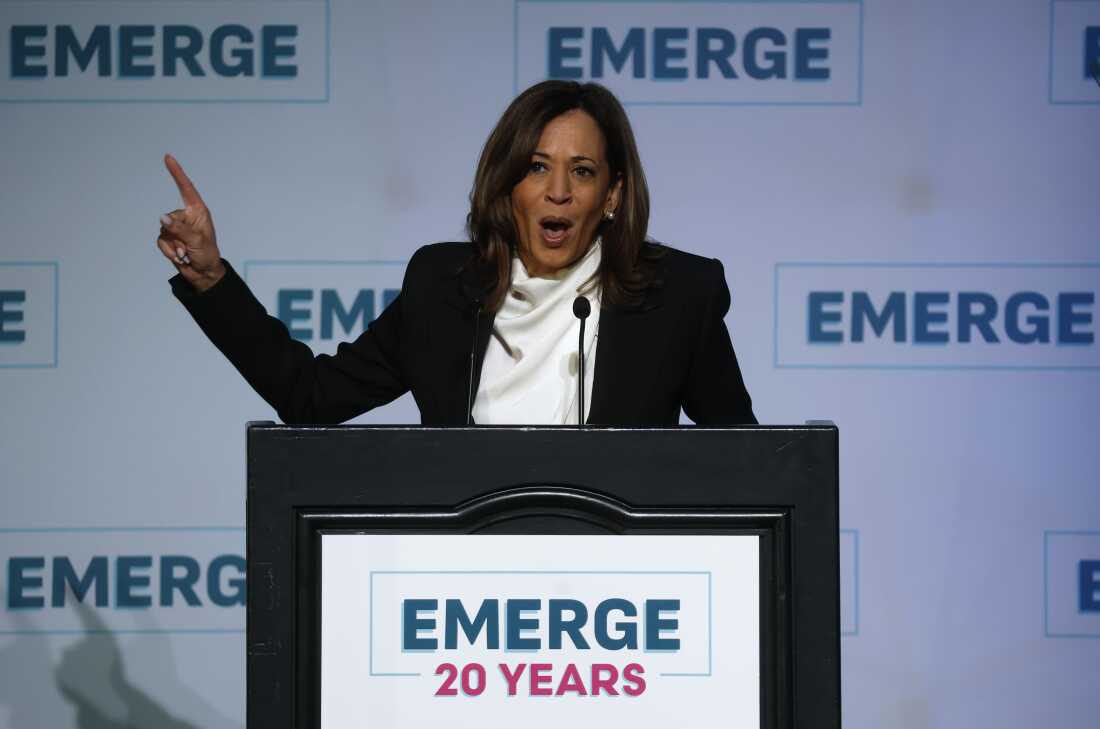
Harris’s appearance in San Francisco also underscored her continued ties to California, where she began her political career and still maintains a strong base of support. Her speech was met with praise from attendees, many of whom said they were looking for renewed focus and clarity in the Democratic Party’s message heading into future elections.
“She said what so many of us have been feeling,” said one attendee. “We’ve watched what’s been happening in Washington, and it’s frightening. But hearing her speak reminds us that we can do something about it. That we have to do something.”
With the 2026 midterms already in view, Democrats are facing mounting pressure to coalesce around a message that can challenge the Trump administration’s agenda and reconnect with disaffected voters. Harris’s speech appeared to lay down a marker for what that message might look like—one focused not only on policy, but on values, integrity, and collective action.
As she closed her remarks, Harris called on the audience to stay active and engaged, reminding them that change is possible when people come together with purpose.
“This is a fight worth having,” she said. “And I believe with all my heart that if we meet this moment with courage, with compassion, and with clarity, we will not only endure—we will prevail.”
